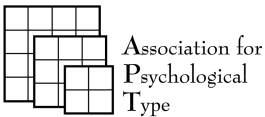|
Home
APT Guidelines for Feedback
Distance Guidelines
Voice to Voice
Internet Interpretation
________________

| |
The Ethical Challenge
An awareness of the power of psychological type has dramatically increased
the number of professionals administering and interpreting type. At the
same time, advances in communication technology offer open access of type
information to the general public. These trends create a concern for the
proper use of type instruments and the accurate and positive interpretation of
type scores. Reports of misuses of type are growing in number.
The primary mission professional associations such as APT Canada is twofold:
 | to expand knowledge about psychological type |
 | to support the ethical use of psychological type and type instruments. |
APT Canada encourages all professionals to become familiar with and to
practice ethical principles in the various applications of type theory.
Back to top

Reminders & Guidelines
 | Additional Resources |
Back to top

Accurately represent your
competence and expertise to clients.
 | Be sure you are
professionally qualified before using any psychological instrument. |
 | Participate in
conferences, workshops and networking with colleagues to keep your knowledge
of psychological type theory, applications and research up-to-date. Be aware
of new materials related to psychological type, especially in your area of
expertise. |
 | Honor copyright laws; do
not reproduce copyrighted materials without permission of the copyright
holder. |
 | Be aware of and adhere to
federal and state laws governing the conduct of professionals using
psychological instruments. |
 | Be responsible to educate
others who misuse type. |
 | If you make reference to
the MBTIÒ
instrument be sure to use the trademark
Ò
and use the term MBTIÒ
only as an adjective (MBTIÒ
instrument) or adverb (MBTIÒ
qualified), not alone. |
Back to top

 | Provide face to face interpretation and time in workshops to answer
individual questions. |
 | Be sure to present the type preferences and types as describing preferred
patterns of behaviour, rather than fixed "trait like" behaviours |
 | Be sure to remind the individual receiving type feedback that he or she is
the expert - only the individual can verify which type fits best. |
 | Present type as a working "hypothesis" allowing for deeper and
richer exploration of self and others. |
 | Explain that type is not "pigeon holing", because individual
types are complex, dynamic and capable of unique patterns of behaviour and
development. |
 | When using career related data, such as type tables, stress that type
theory has no implications for competence, capability or performance in a
career path, but is excellent for examining career interest tendencies and
choices. |
 | When sharing type data, be sure to distinguish between research and
anecdotal evidence. |
 | Be sure to provide materials for further study. |
 | Emphasize and illustrate the dangers of oversimplifying or misusing type
theory. |
Back to top

 | Be sure participants know that taking a
psychological type instrument is voluntary. |
 | Communicate and make certain that all
individual type results are the property of the individual to be shared or not
as that person chooses. |
 | Provide supporting materials that describe
all 16 types and basic information about psychological type for participants
to take. |
 | Describe preferences and present type
descriptions prior to sharing results to allow for individual self-assessment
of their preferences. |
 | Use language that says "Your preferences..."
rather than "You are..." |
 | Inform the participants that preference
scores do not imply excellence, competence, or ability but are an indication
of consistency in "voting" for the preferences when they filled out the
inventory. |
 | Remind the participants that they are the
final judges of their best-fit type. This may not be the same as the reported
type they receive as results from an inventory. |
 | Provide time and opportunity for individual
questions about type results. |
 | Be aware of your own type biases and how
these might influence your communication of type information. |
Back to top
If you have concerns about
the ethical use of type,
 |
call APT Headquarters at
(847) 375-4717 for the phone number of the current Chair of the APT Ethics
Committee. |
Back to top

The following articles are provided to further
clarify the ethical use of psychological type instruments.
 | APA Ethical Principles Sections 3, 4, & 9 |
 | Person-to-Person by Roger R. Pearman, APT
Bulletin of Psychological Type, Early Spring 2002. |
 | “Person-To-Person”
Interpretation Is New Minimum Standard
by Ray Zeisset, APT Bulletin of Psychological Type, Late Autumn 2002 |
 | Throwing the Baby Out
With the Bathwater
by Roger R.
Pearman, APT Bulletin of Psychological Type, Winter, 2003. |
Back to top

Last updated:
January 28, 2005.
|
|